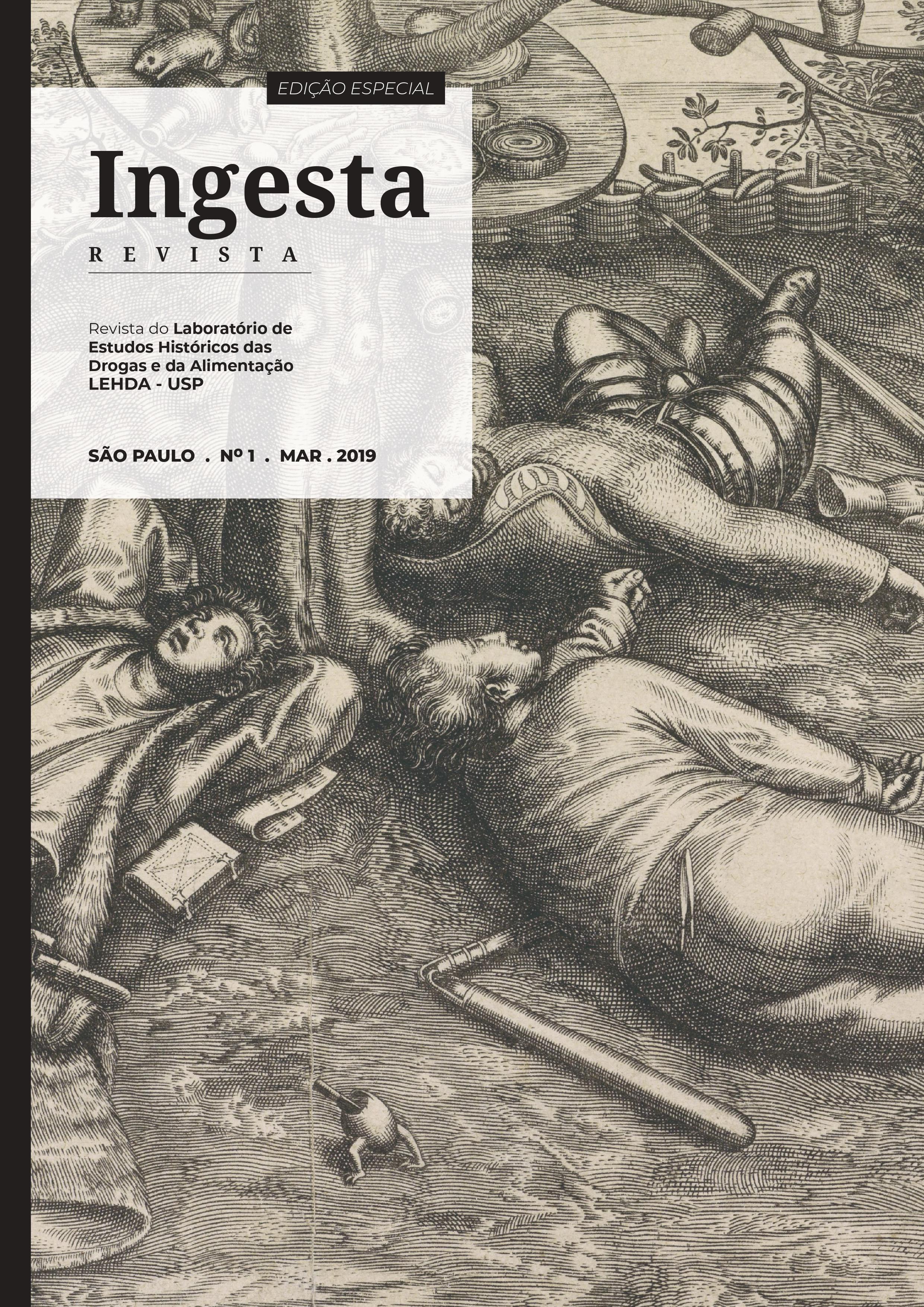Comunidade Terapêutica democrática ou nova racionalização de operação do poder psiquiátrico
referências históricas de sua emergência
DOI:
https://doi.org/10.11606/issn.2596-3147.v1i1p268-282Palavras-chave:
Comunidade Terapêutica, Maxwell Jones, Franco Basaglia, PsiquiatriaResumo
Em meio ao crescimento da formação de Comunidades Terapêuticas no Brasil, bem como de pesquisas que procuram compreender sua lógica, ordem, prática e funcionamento, este artigo pretende apresentar um esboço de dois autores e seus ideários, tomando-os como notas de referência sobre os sentidos das CTs contemporâneas. As ideias de Maxwell Jones e Franco Basaglia são apresentadas para refletir sobre como suas trajetórias em diferentes instituições e modelos de psquiatrias acendeu debates que levam em conta os conceitos de democracia e racionalização para a psiquiatria e a emergência das Comunidades Terapêuticas. Uma das críticas postas era a de que especulações teóricas acabariam por transformar as CTs em instituições modernas e racionalizadas e, por conseguinte, integradas ao sistema sem que se eliminassem as relações de poder. A partir de questões como essas, analisamos pontos colocados por ambos. Seja na descentralização do poder da psiquiatria ou na ambiguidade dialética comunitária, os modelos teórico-práticos propostos pelos autores e apresentados neste artigo colocam em evidência as contradições das instituições no interior dos hospitais psiquiátricos e que nos dão pistas para a compreensão das CTs.
Downloads
Referências
BASAGLIA, Franco. A instituição negada: relato de um hospital psiquiátrico. Rio de Janeiro: Edições Graal, 1985 [1968].
BASAGLIA, Franco et. al. Considerações sobre uma experiência comunitária. In: AMARANTE, Paulo Duarte de Carvalho (Org). Psiquiatria social e reforma psiquiátrica. Rio de Janeiro: Editora Fiocruz, 1994.
BARNES, Mary; BERKE, Joseph. Two accounts of a journey through madness. Londres: MacGibbon and Kee, 1971.
BARRACLOUGH, Brian. In conversation with Maxwell Jones. Bulletin of the Royal College of Psychiatrists, v. 8, n. 9, pp. 166-170, set. 1984. Disponível em: <https://www.cambridge.org/core/services/aop-cambridge-core/content/view/4941C60A0028B6313C5CA1474E070D21/S0140078900000213a.pdf/in_conversation_with_maxwell_jones.pdf>. Acesso em: nov. 2018.
BRIGGS, Dennie. Social Psychiatry in Great Britain. The American Journal of Nursing, v. 59, n. 2, pp. 215-220, fev. 1959.
BRIGGS, Dennie. The Therapeutic Community established by Dr. Harry A. Wilmer. Oakland: U.S. Naval Hospital, 2000.
CLARK, David. Therapeutic Community Memories: Maxwell Jones. Archive and Study Centre Publications, Gloucestershire, série 2, mai. 2005. Disponível em: <http://www.pettrust.org.uk/index.php?option=com_content&view=article&id=781:therapeutic-community-memories-maxwell-jones&catid=241&Itemid=407>. Acesso em dez. 2018.
FUSSINGER, Catherine. “Therapeutic community”, psychiatry’s reformers and antipsychiatrists: reconsidering changes in the field of psychiatry after World War II. History of Psychiatry, v. 22, n. 2, pp. 146–163, 2011.
GOULART, Maria Stella Brandão. Comunidades Terapêuticas: conceitos e práticas de uma experiência dos anos sessenta. Revista de Psicologia, Fortaleza, v. 5, n. 2, pp. 53-69, jul./dez. 2014.
HOGAN, Michael J. The Marshall Plan, America, Britain, and the reconstruction of Western Europe, 1947-1952. Cambridge: Cambridge University Press, 1987.
JONES, Maxwell. Social psychiatry: a study of Therapeutic Communities. Londres: Tavistock, 1952.
JONES, Maxwell. A comunidade terapêutica; tradução de Lúcia de Andrade Figueredo Bello. Petrópolis, Vozes, 1972
JONES, Maxwell. The therapeutic community. Dialogues with Maxwell Jones (interviewed by Dennie Briggs). São Francisco: Special Collections, The Library of the University of California, 1991.
KUHN, Thomas. A estrutura das revoluções científicas. São Paulo: Editora Perspectiva, 1998.
LECOMTE, Yves; TOURIGNY, Charles. La communauté thérapeutique. Première partie: définition, caractéristiques et évolution. Santé mentale au Québec: Structures intermédiaires ou alternatives?, v. 8, n. 1, pp. 107-121, jun. 1983.
MAIN, T. F. The hospital as a therapeutic institution. Bulletin of the Menninger Clinic, n. 10, pp. 66-70, 1946.
MANNING, Nick. The therapeutic community movement: charisma and routinization. Londres: Routledge, 1989.
POPPER, Karl R. Conjecturas e refutações: o progresso do conhecimento científico. Brasília: Editora da UnB, 1980.
QUÉTEL, Claude. As mulheres na guerra, 1939-1945. Tradução: Ciro Mioranza. São Paulo: Larousse do Brasil, 2009.
RAPOPORT, Robert N.; RAPOPORT, Rhona S. “Democratization” and authority in a therapeutic community. Behavioural Science, n. 2, pp. 128-133, 1957.
TREBAT, Nicholas Miller. The United States, Britain and the Marshall Plan: oil and finance in the early postwar era. Economia e Sociedade, Campinas, v. 27, n. 1, pp. 355-373, abr. 2018.
VANDEVELDE, Stijn. Maxwell Jones and his work in the therapeutic community. Tese (Mestrado em Ciências Educacionais) – Faculty of Psychology and Educational Sciences da Ghent University. Bélgica, 1998/1999.
WILMER, Harry. A psychiatric service as a Therapeutic Community. U.S. Armed Forces Medical Journal, v. 7, pp. 640-654, mai. 1956a.
WILMER, Harry. A psychiatric service as a Therapeutic Community. Part II: Ten-month study in the care of 939 patients. U.S. Armed Forces Medical Journal, v. 7, pp. 1465-1469, out. 1956b.
WILMER, Harry. Social Psychiatry in action: a Therapeutic Community. Springfield: Charles C. Thomas, 1958.
Downloads
Publicado
Edição
Seção
Licença
Autores que publicam nesta revista concordam com os seguintes termos:
- Autores mantém os direitos autorais e concedem à revista o direito de primeira publicação, com o trabalho simultaneamente licenciado sob a Licença Creative Commons Attribution que permite o compartilhamento do trabalho com reconhecimento da autoria e publicação inicial nesta revista.
- Autores têm autorização para assumir contratos adicionais separadamente, para distribuição não-exclusiva da versão do trabalho publicada nesta revista (ex.: publicar em repositório institucional ou como capítulo de livro), com reconhecimento de autoria e publicação inicial nesta revista.
- Autores têm permissão e são estimulados a publicar e distribuir seu trabalho online (ex.: em repositórios institucionais ou na sua página pessoal) a qualquer ponto antes ou durante o processo editorial, já que isso pode gerar alterações produtivas, bem como aumentar o impacto e a citação do trabalho publicado (Veja O Efeito do Acesso Livre).



